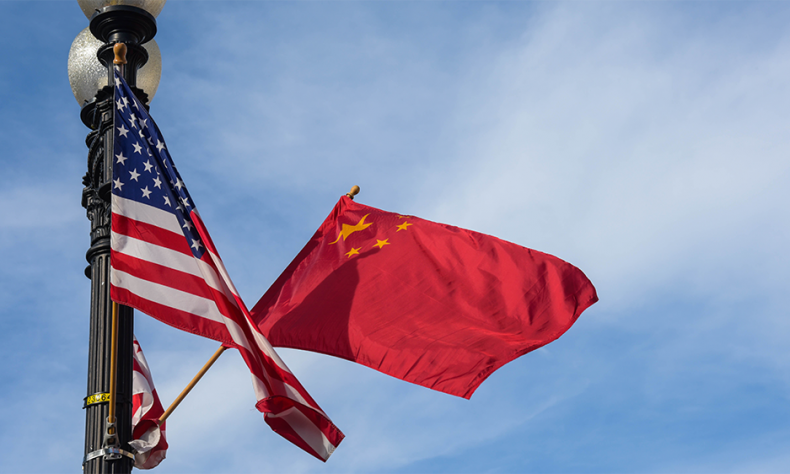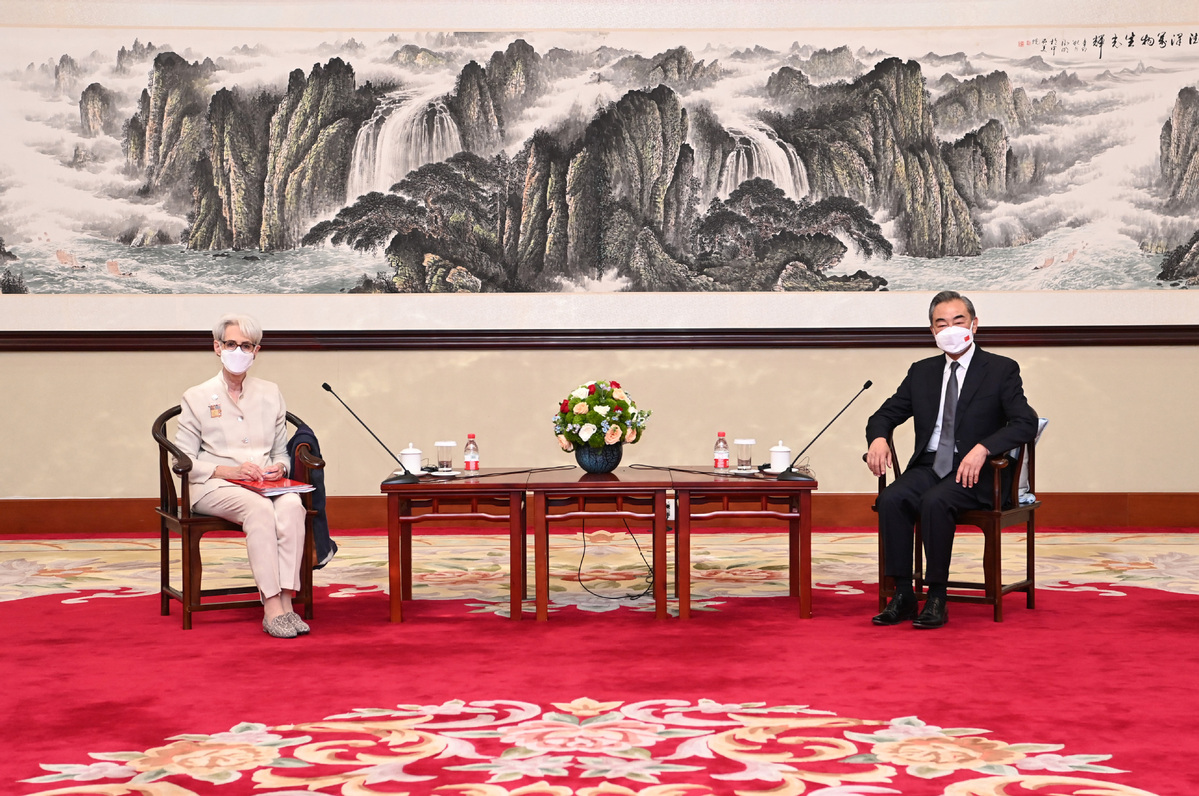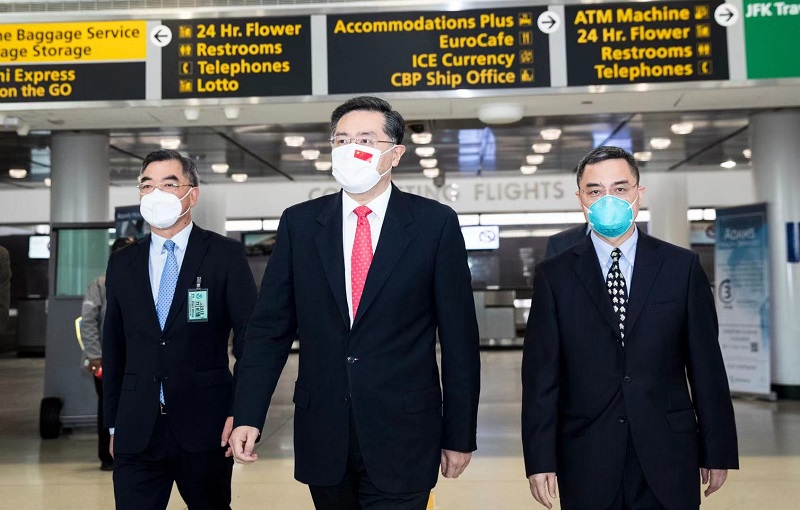China Outlines Bottom Lines for the U.S.

Where this important relationship will be headed is vital for the wellbeing of the Chinese and American peoples and for the future of the world.
On July 26, visiting U.S. Deputy Secretary of State Wendy Sherman met with Chinese State Councilor and Foreign Minister Wang Yi and Vice Foreign Minister Xie Feng, respectively, in Tianjin. They were further diplomatic engagements between the two countries since their high-level strategic dialogue in Anchorage, the U.S., in March.
Ground rules
In Anchorage, responding to the apparent U.S. sense of self-importance, China adhered to the standards of equal-footing diplomacy. During the Tianjin meetings, it further created a set of rules for the U.S. to abide by when dealing with bilateral ties.
Wang told Sherman that China is firmly opposed to President Joe Biden’s administration’s continuation of its predecessor’s extreme and erroneous China policy. He underlined three basic demands for the U.S., namely, not to challenge, slander or even attempt to subvert the path and system of socialism with Chinese characteristics; not to attempt to obstruct or interrupt China’s development process; and not to infringe upon China’s state sovereignty, or damage China’s territorial integrity.
“We have a clear idea where China-U.S. relations are headed; that is, to find a way for two major countries featuring different systems, cultures and stages of development to coexist peacefully on this planet through dialogue,” Wang said.
During his four-hour talks with Sherman, Xie criticized the condescending manner of dealing with China from “a position of strength” on the part of the U.S. He also refuted baseless U.S. accusations against China over issues related to diplomatic strategy, COVID-19 pandemic origin tracing, Xinjiang, Hong Kong and cyber security.
The vice minister then put forward two lists, one of the U.S. wrongdoings that must stop and the other of the key individual cases that China has concerns with.
On her way to China, Sherman told reporters that guardrails must be in place to ensure that the U.S. and China do not get off-track and end up in conflict. Xie emphasized that the establishment of such guardrails must follow the principles of equality and mutual benefit.
During her meeting with Wang, Sherman said the U.S. does not seek to contain China’s development, and hopes that both countries will develop healthy competition, achieve peaceful coexistence, and cooperate on climate change, drug control, and international and regional hotspot issues, according to Xinhua News Agency. She reiterated that the U.S. abides by the one-China policy and does not support “Taiwan independence”.

Waning willingness?
Since it took office in January, the Biden administration has conducted a thorough review of the United States’ China policy, described as “long-term and intense strategic competition” by the president. In addition, the U.S. has accelerated its global deployment to contain China. It has stressed that competition should start at home and the U.S. must inspire and enhance domestic competitiveness.
The U.S. has also tried to enlist its allies to forge a “community of values” against China, luring them in with promises of security. Other measures, such as technology-decoupling, financial sanctions and upgrading the so-called Indo-Pacific Strategy, have also been rolled out to restrain China’s development.
The direction of the Biden administration’s China policy and the measures it has resorted to have prompted China to develop a more realistic view of the U.S.
China no longer harbors any illusions that the Biden administration will turn around. Consequently, it is more determined to overcome the U.S. containment and gain equal treatment through tit-for-tat tactics.
Prior to the meetings both in Anchorage and Tianjin, the U.S. imposed sanctions on Chinese officials and enterprises. For example, the U.S. Department of State issued its so-called Hong Kong Business Advisory on July 16, and applied sanctions on seven deputy directors of the Liaison Office of the Central People’s Government in Hong Kong Special Administrative Region. In response, China on July 23 imposed sanctions on seven U.S. individuals and entities, citing the Anti-Foreign Sanctions Law—adopted on June 10—for the first time ever. The main purpose of this new legislation is to provide a legal basis for China to hit back at any “discriminatorily restrictive measures” that may be imposed by foreign countries against Chinese organizations and citizens.
Recently, there have been signals that the policy review process of the Biden administration has entered a new stage.
On July 7, during an Asia Society event, Kurt Campbell, Coordinator for Indo-Pacific Affairs with the U.S. National Security Council, reiterated his earlier announcement that the era of U.S. engagement with China is over and that the most dominant process will be competition, following his speech at an event hosted by Stanford University in May.
Campbell, however, argued that the relationship between China and the U.S. should not be viewed as “a new cold war.” He added that the Biden administration would soon seek high-level contacts with China and talked about the possibility of a meeting between the two presidents on the sidelines of the Group of 20 Summit in Italy in October.
Since the end of the Cold War in 1991, the U.S. has pursued a strategy of engagement with China. By integrating China into the U.S.-led international system, the outward goal is to change China and have it conform to U.S. values and interests.
Campbell’s words give the impression that the U.S. expects to manage bilateral differences through limited diplomatic dialogue and communication in a bid to avoid catastrophic conflict. Sherman’s visit to Tianjin is part of Biden’s bigger “keeping contacts with China” plan.

Positive indicators
To some observers, the Tianjin meetings indicate that the China-U.S. relationship may continue deteriorating. Nevertheless, it is clear that the two sides still uphold two important consensuses. One is that the China-U.S. relationship is one of the most critical bilateral ties in the world, and neither of them can replace or defeat the other. So they must find a way to get along in a responsible manner. The other is that a sustained and sustainable diplomatic relationship is essential for the effective management of differences, the stabilization of relations, and the avoidance of conflicts.
They are also fully aware of the significance of their cooperation in addressing major global and regional challenges.
After the Biden administration took office, in addition to diplomatic dialogues, the economic and trade negotiation teams of China and the U.S. have conducted three rounds of consultations. Climate negotiators of both sides have also maintained close communication and have reached agreements on reducing carbon emissions.
On July 28, Chinese Ambassador to the U.S. Qin Gang told the press, as two big countries different in history, culture, social system and development stage, China and the U.S. are entering a new round of mutual exploration, understanding and adaptation, trying to find a way to get along with each other in the new era.
“The China-U.S. relationship has once again come to a new critical juncture, facing not only many difficulties and challenges but also great opportunities and potential,” he said. “Where this important relationship will be headed is vital for the wellbeing of the Chinese and American peoples and for the future of the world. The two peoples and the international community hope for a sound, stable and growing relationship between the two countries.”
The more extensive the China-U.S. competition becomes, the more important the role of diplomacy is. It should be constructive and conducive to managing differences, avoiding conflict, promoting the alignment of interests and peaceful coexistence, and setting an example for the international community to jointly respond to global challenges.
An Gang is an op-ed contributor to Beijing Review and a researcher with the Pangoal Institution.
 Facebook
Facebook
 Twitter
Twitter
 Linkedin
Linkedin
 Google +
Google +










